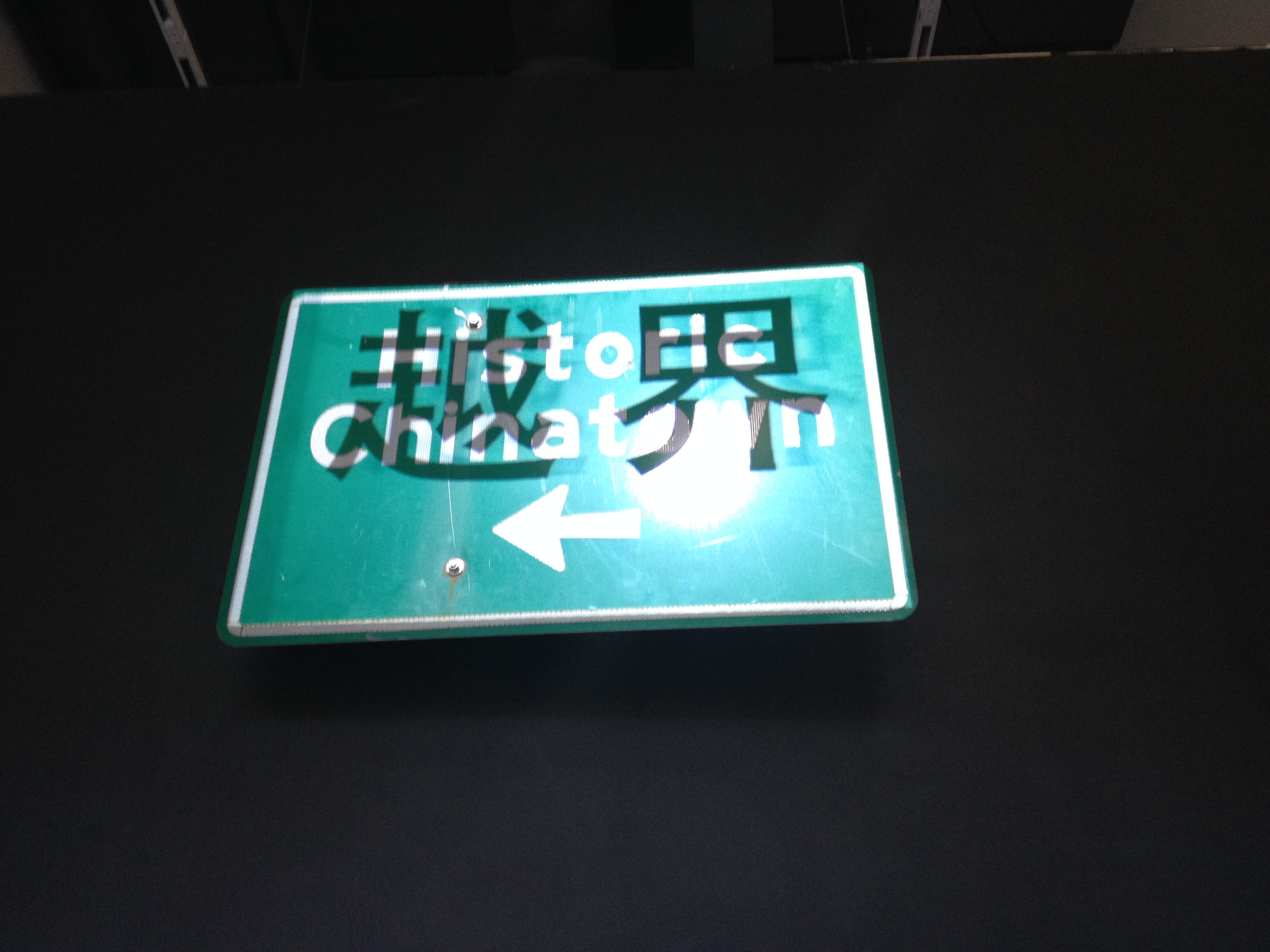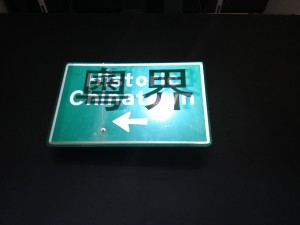Visualizing a linguistic sphere
The transgression/cantosphere (越界/粤界) exhibit at Centre A of Chinatown, with its particular choice of words, voiced its protest against the suppression of Cantonese in Vancouver and China. Playing with similar sounds right away with its title 越界/粤界, which have the same pronunciation in Cantonese, the exhibit reworks the cantosphere as a space of transgression.
A collaboration between linguist Zoe Lam and artist Howie Tsui, the exhibit is a distinctive work combining a meditation on space and the languages that inhabit that space. The gallery was smaller than anticipated, but the enclosed space reinforced the sense of claustrophobia from restricted language use. It also fully surrounds the viewer in the echoes of the Cantonese voice, reading and playing with different sentences by changing a single character while retaining the same pronunciation. The result is sometimes nonsensical, yet oddly comprehensible, sentences presenting different messages of resilience and solidarity. One issue being addressed is the the 2014 Hong Kong protests, in part held as a resistence to the totalization of culture, of the removal of a distinct “cantosphere” for an increasingly “mandosphere” space. This limiting “space for…cultural expression” is occurring in Vancouver as well, with the diminishing “potential for linguistic and cultural vitality in Chinatown” (Russell) caused in part by revitalization efforts.
The English section of the exhibit consists of a long line of English words running along the wall of the gallery, and a small display of “western” products now being introduced into Chinatown. The English sentence(s) has no punctuation or spacing, making it difficulty to read and understand. This is perhaps in accord with its particular language that the curator, Mr. Tyler Russell (who we were fortunate to meet and talk with, alongside the artist Zoe Lam), continuously questioned while explaining that part of the exhibit to us. Ideas such as “encourage business owners to greet customers with friendly and welcoming attitude” (City of Vancouver 49) and “the growing genre of new technology-based businesses and start-ups that find cultural and even edgy neighbourhoods appealing” (50) all came under fire from Mr. Russell, who questioned what exactly the city meant by these comments, and how Chinatown was currently failing in these regards. The idea of making Chinatown no longer “historic,” (as the sign at the front of the exhibit so aptly put), seems to involve making the apparently “out of date” Chinatown more modern, more tourism-friendly, and more vibrant. Part of that was bringing in more outside businesses, including those that have introduced more “western” products, such as the beard oil that was so comically on display.
Transgression/cantosphere is an interesting multi-sensory exploration of the effects of limiting space for linguistic and cultural expression, and how that limits personal and national expressions of freedom. As one listens to Zoe Lam attempt to teach fellow artist Howie Tsui Cantonese at the mahjong table near the entrance of the exhibit, one feels a similar sense of confusion of attempting to navigate a distinctive “cantosphere” on the verge of being lost.
Russell, Tyler. “transgression/cantosphere”. Vancouver: Centre A, n.d. Print.
City of Vancouver. “Chinatown Economic Revitalization Strategy.” City of Vancouver, Vancouver, 2012. Web. 12 Mar. 2015.

